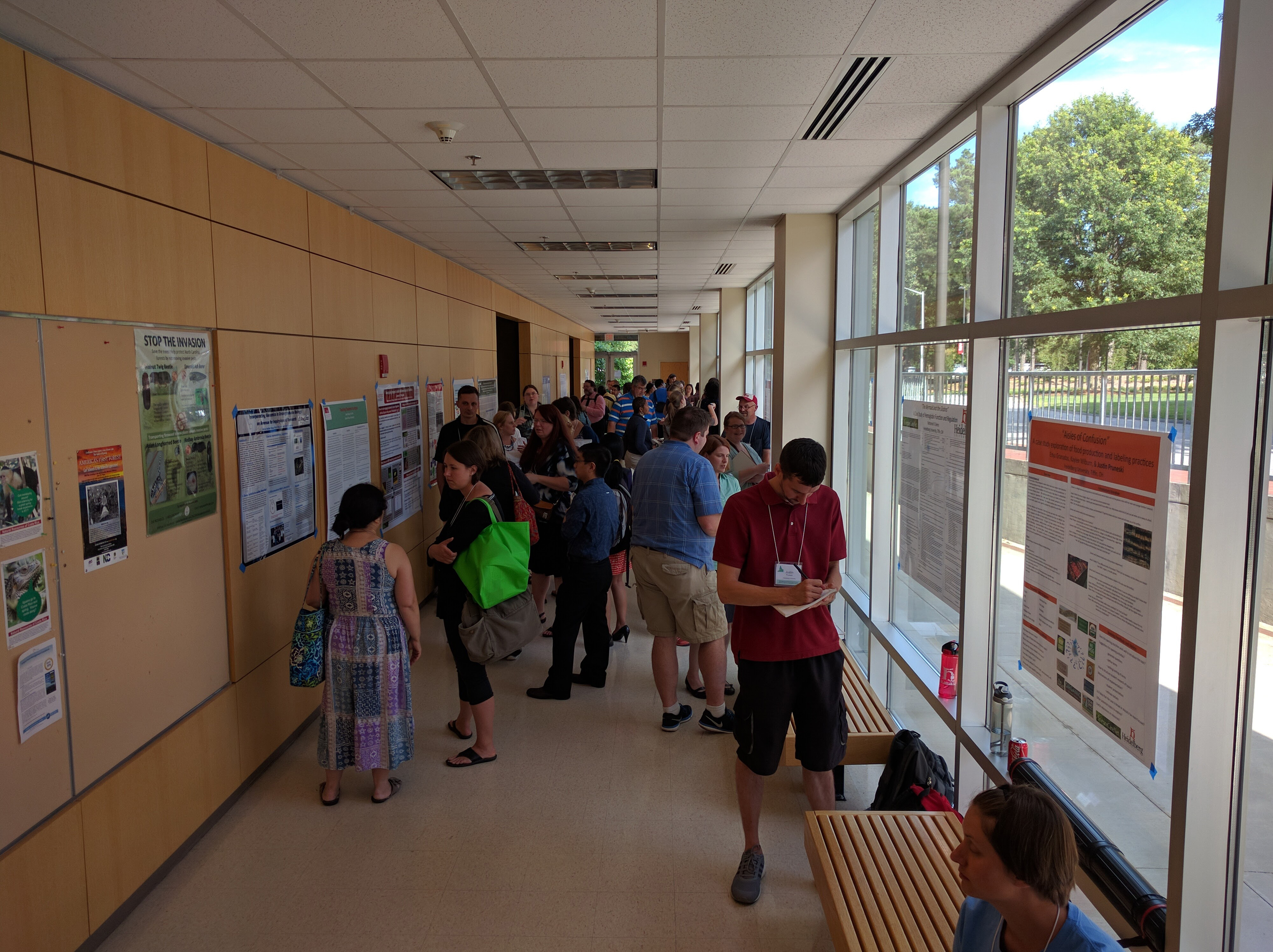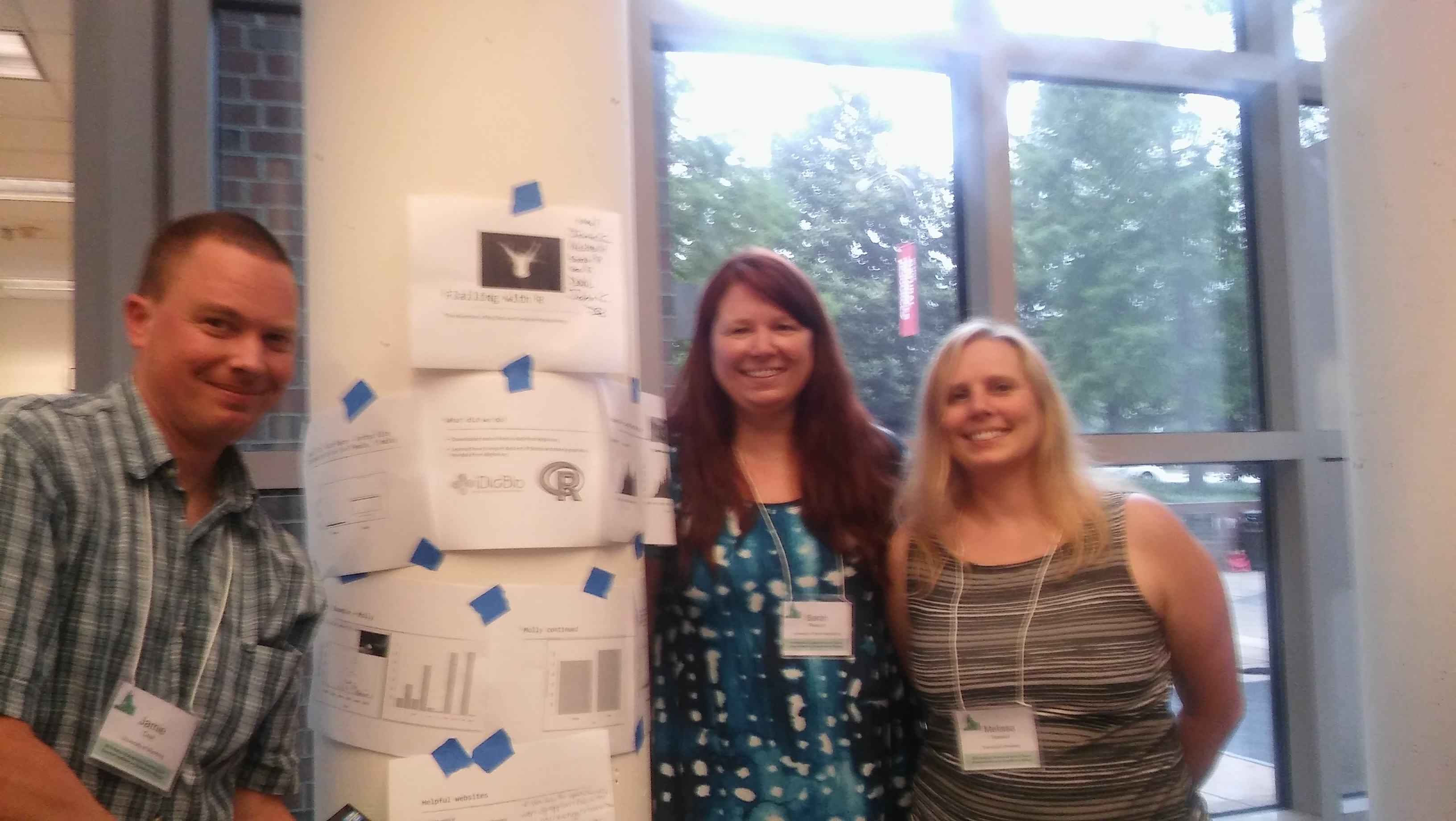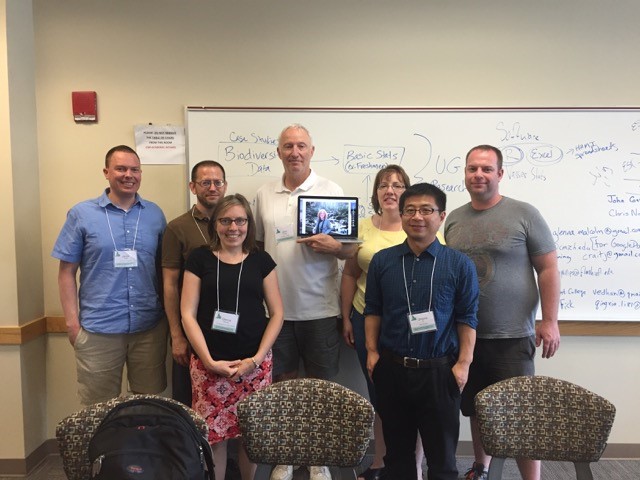
Day One Poster Session
iDigBio was excited to get to both present and participate in the 2016 National Academies Special Topics Summer Institute on Quantitative Biology “Lowering the Activation Energy: Making Quantitative Biology More Accessible" Workshop held on June 19-24, 2016 at North Carolina State University, Raleigh North Carolina.
David Bloom (iDigBio, VertNet, AIM-UP!), Deb Linton (Central Michigan University), Molly Phillips (iDigBio), and Josh Whorley (AIM-UP!) were invited to represent the newly formed QUBES (Quantitative Undergraduate Biology Education and Synthesis) Faculty Mentoring Network created to continue development of AIM-UP! undergraduate modules that use digitized natural history collections data. The group's participation was supported by Biodiversity Collections Network (BCoN), Science Case Net, Central Michigan University and iDigBio.
On day one, the team presented a poster introducing workshop participants to the project. A digital version of the poster can be found here. Day two consisted of a series of two hour mini-workshops, and the biodiversity group had an evening session where they introduced a small group to natural history data, AIM-UP! modules, and online sources of digitized data.
Day three was dedica ted to the workshop’s first project “Research as Creative Play.” The biodiversity team (Molly and Deb) joined up with several other workshop participants to use biodiversity data to explore R Studio. All but one member of the group (thank you John!) were fairly new to R, and so the group was affectionately named “Flailing with R.” Group members downloaded data from iDigBio (by choosing a taxon of interest), uploaded the data into R Studio, and then attempted simple commands in R to either visualize or analyze their datasets. The group discussed the challenges of working with both R, and natural history data and how to tackle that in the classroom. The end of day three culminated in a “poster session” where the group made a poster out of printed power point slides and talked with other workshop participants about their struggles and successes with using R to explore biodiversity datasets.
ted to the workshop’s first project “Research as Creative Play.” The biodiversity team (Molly and Deb) joined up with several other workshop participants to use biodiversity data to explore R Studio. All but one member of the group (thank you John!) were fairly new to R, and so the group was affectionately named “Flailing with R.” Group members downloaded data from iDigBio (by choosing a taxon of interest), uploaded the data into R Studio, and then attempted simple commands in R to either visualize or analyze their datasets. The group discussed the challenges of working with both R, and natural history data and how to tackle that in the classroom. The end of day three culminated in a “poster session” where the group made a poster out of printed power point slides and talked with other workshop participants about their struggles and successes with using R to explore biodiversity datasets.


Days four and five were dedicated to developing a classroom activity. The biodiversity team joined forces with other workshop participants interested in using biodiversity data to teach basic statistics in the classroom. This project has evolved into the Summer Institute Working Group - Biodiversity to Explore Applied Statistical Techniques (BEAST). This group is working specifically to develop a biodiversity case study with data from iDigBio to teach students basic statistical concepts (e.g. means, variance, t-tests, regression, etc.) and tools (Excel, R, etc.). To learn more, or join the working group, visit: https://qubeshub.org/groups/si16_beast.

Visit the QUBES website dedicated to the workshop to see the full schedule, information on speakers, and working groups, and related resources.







